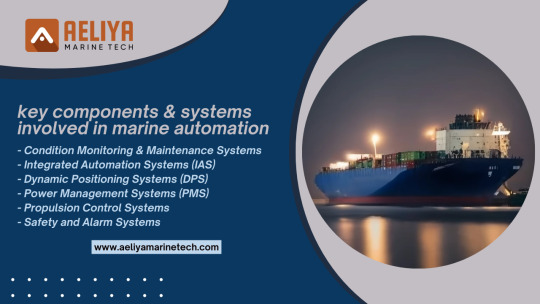#IntegratedControlSystems
Explore tagged Tumblr posts
Text
The Power of Integrated Control Systems
Unlocking Efficiency: The Power of Integrated Control Systems
In today’s fast-paced world, industries are constantly striving to enhance efficiency, reduce costs, and improve overall performance. One of the most transformative technologies driving these improvements is the integrated control system. These systems are revolutionizing how businesses manage their processes, ensuring that operations are more streamlined, data-driven, and adaptable.
What Are Integrated Control Systems?
Integrated control systems refer to the amalgamation of various control processes into a single, cohesive system. This integration allows for real-time monitoring, automated control, and seamless communication across different components of an organization’s infrastructure. Essentially, it’s about bringing together various control elements—such as sensors, actuators, controllers, and software—into a unified platform that can manage complex operations more effectively.
The Benefits of Integrated Control Systems
Enhanced Efficiency: By consolidating control functions, integrated systems eliminate the need for disparate controls and manual interventions. This streamlining leads to more efficient processes, as data flows seamlessly between components and decisions are made faster.
Real-Time Monitoring and Control: Integrated control systems offer real-time visibility into operations. This means that businesses can monitor performance continuously, respond quickly to issues, and make data-driven decisions that enhance productivity and reduce downtime.
Cost Reduction: Although the initial investment in an integrated control system might be significant, the long-term savings are substantial. Reduced downtime, optimized processes, and lower maintenance costs contribute to a better return on investment.
Scalability and Flexibility: Modern integrated control systems are designed to be scalable, meaning they can grow with your business. Whether you’re expanding operations or adding new features, these systems can adapt without requiring a complete overhaul.
Improved Data Analytics: Integration allows for comprehensive data collection and analysis. With all your data centralized, you gain valuable insights that can lead to more informed decision-making and strategic planning.
Applications Across Industries
The versatility of integrated control systems makes them applicable across various industries:
Manufacturing: In manufacturing, these systems optimize production lines, enhance quality control, and reduce waste. Automated processes and real-time adjustments lead to higher efficiency and consistency.
Energy Management: In the energy sector, integrated control systems are crucial for managing complex grids and optimizing energy distribution. They enable better demand forecasting and efficient resource allocation.
Building Management: For commercial and residential buildings, integrated control systems manage HVAC, lighting, and security systems from a single interface, improving comfort and energy efficiency.
Transportation: In transportation, these systems ensure smoother operations by integrating traffic management, vehicle control, and communication systems, enhancing safety and efficiency.
Implementing Integrated Control Systems
Successful implementation of an integrated control system involves several key steps:
Assessment: Begin by evaluating your current systems and identifying areas where integration can add value. Determine your goals and requirements to guide the selection of the right system.
Selection: Choose a control system that aligns with your needs and budget. Consider factors such as scalability, ease of integration, and compatibility with existing infrastructure.
Deployment: Work with experienced professionals to install and configure the system. Proper setup ensures that all components work together seamlessly.
Training: Equip your team with the necessary skills to operate and maintain the system. Training is crucial for maximizing the benefits of your integrated control system.
Monitoring and Optimization: After deployment, continuously monitor system performance and make adjustments as needed. Regular updates and maintenance will ensure that the system remains effective and efficient.
Conclusion
Integrated control systems represent a significant advancement in managing and optimizing operations across various industries. By streamlining processes, providing real-time insights, and enabling better decision-making, these systems help businesses achieve greater efficiency and effectiveness. As technology continues to evolve, integrated control systems will undoubtedly become even more sophisticated, offering even greater benefits and opportunities for innovation.
Embracing integrated control systems can be a game-changer for your business, paving the way for enhanced performance and a more agile, data-driven approach to operations.
#IntegratedControlSystems#Automation#Efficiency#IndustrialAutomation#SmartTechnology#DataDriven#ProcessOptimization#RealTimeMonitoring#ControlSystems#TechInnovation#Manufacturing#EnergyManagement#BuildingManagement#Transportation#Scalability#CostReduction#SystemIntegration#OperationalExcellence#BusinessEfficiency#TechSolutions#AutomationTechnology
0 notes
Text

Marine automation encompasses a wide array of components and systems vital for the efficient and safe operation of ships and offshore structures. At its core are various interconnected subsystems that manage propulsion, navigation, communication, safety, and monitoring functions. One fundamental component is the propulsion control system, which regulates the engines, propellers, and thrusters to optimize speed, fuel efficiency, and maneuverability.#PropulsionControlSystem
#NavigationSystems #CommunicationSystems #SafetySystems #MonitoringSystems #IntegratedControlSystems
0 notes